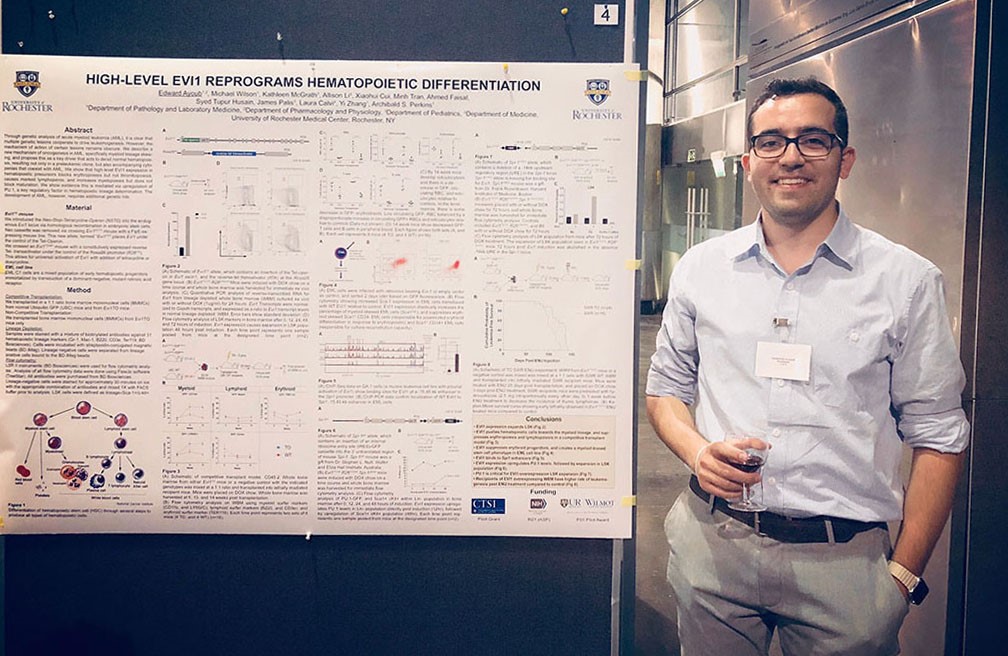 Edward Ayoub, a Graduate student in the Cellular and Molecular Pharmacology and Physiology PhD Program and member of Archibald Perkins Lab published in Nature Communications on 10/12/2018. More information can be found on the Nature Website.
Edward Ayoub, a Graduate student in the Cellular and Molecular Pharmacology and Physiology PhD Program and member of Archibald Perkins Lab published in Nature Communications on 10/12/2018. More information can be found on the Nature Website.
Paper Title & Abstract
EVI1 overexpression reprograms hematopoiesis via upregulation of Spi1 transcription
Edward Ayoub, Michael P. Wilson, Kathleen E. McGrath, Allison J. Li, Benjamin J. Frisch, James Palis, Laura M. Calvi, Yi Zhang & Archibald S. Perkins
Inv(3q26) and t(3:3)(q21;q26) are specific to poor-prognosis myeloid malignancies, and result in marked overexpression of EVI1, a zinc-finger transcription factor and myeloid-specific oncoprotein. Despite extensive study, the mechanism by which EVI1 contributes to myeloid malignancy remains unclear. Here we describe a new mouse model that mimics the transcriptional effects of 3q26 rearrangement. We show that EVI1 overexpression causes global distortion of hematopoiesis, with suppression of erythropoiesis and lymphopoiesis, and marked premalignant expansion of myelopoiesis that eventually results in leukemic transformation. We show that myeloid skewing is dependent on DNA binding by EVI1, which upregulates Spi1, encoding master myeloid regulator PU.1. We show that EVI1 binds to the −14 kb upstream regulatory element (−14kbURE) at Spi1; knockdown of Spi1dampens the myeloid skewing. Furthermore, deletion of the −14kbURE at Spi1 abrogates the effects of EVI1 on hematopoietic stem cells. These findings support a novel mechanism of leukemogenesis through EVI1 overexpression.